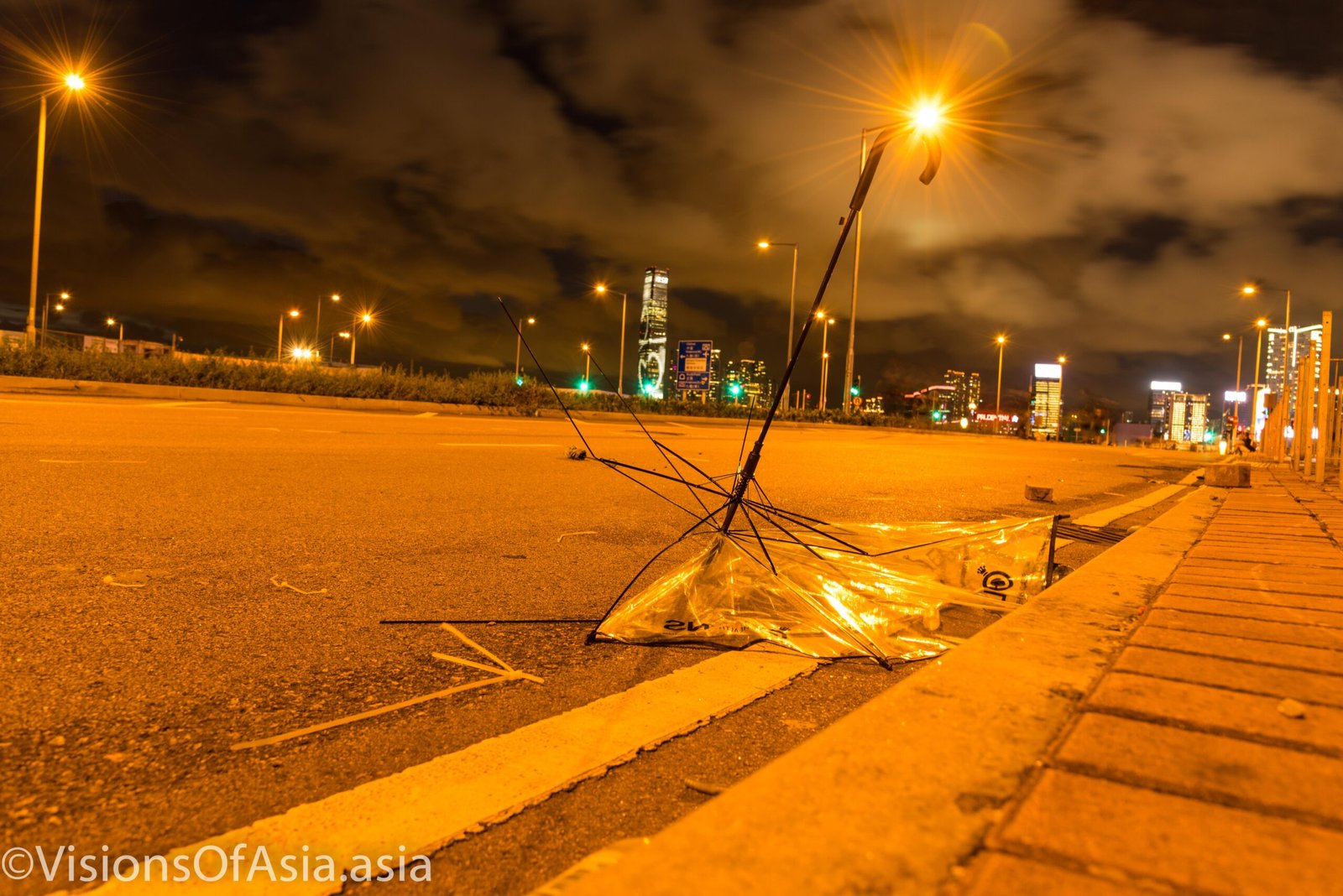A couple of weeks ago, I wrote about the Lion’s spirit which animated Hong Kong. Today, it would seem that the (young) Lions’ roar was heard until Beijing. On Monday 1st July, anniversary of the retrocession of Hong Kong to Beijing, a certain number of young protesters took the Legislative Council by assault and defaced the meeting room.
A peaceful march
It all started with a peaceful march, which is traditionally organized by pro-democracy parties to protest against the erosion of freedoms in Hong Kong since it was taken over by China.
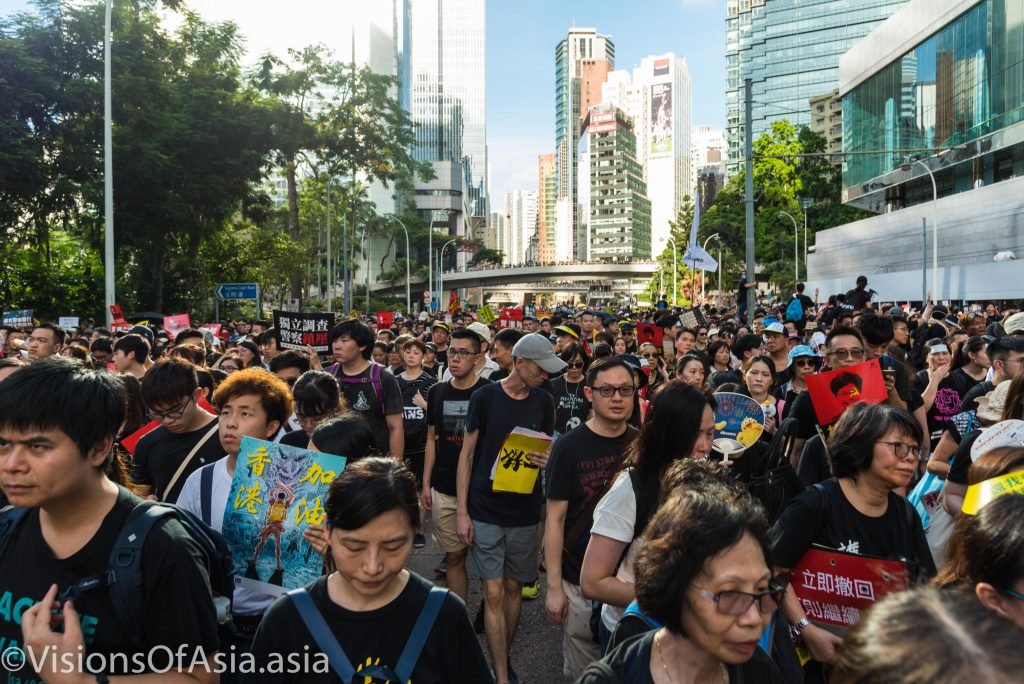
This year, of course, the focus was on the Extradition Bill, which aimed at legalizing the rendition of persons accused by China of having committed crimes.
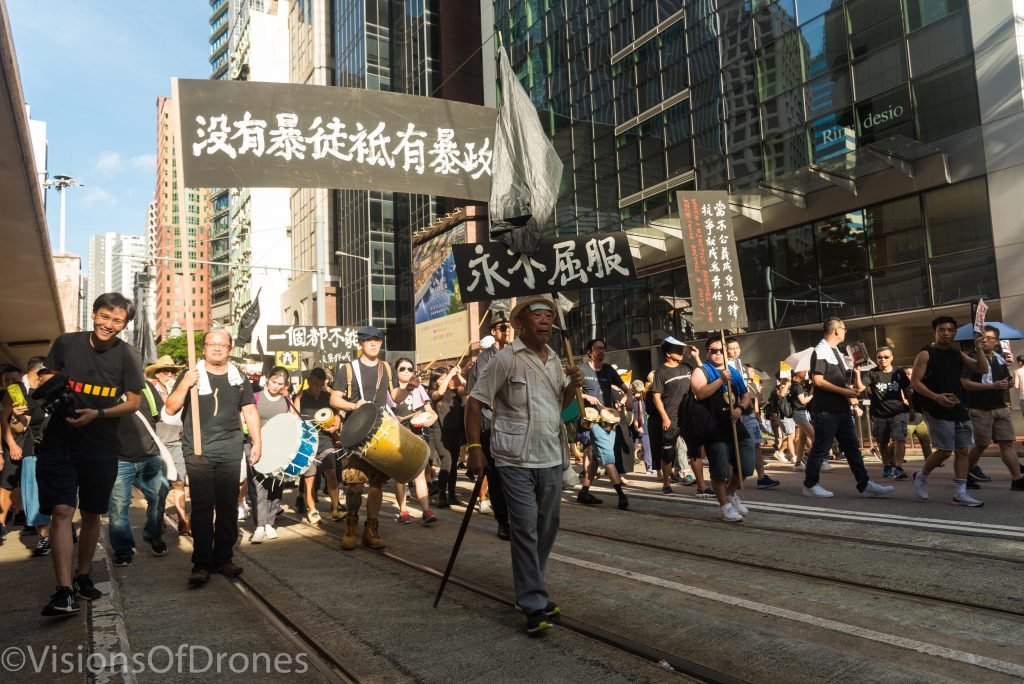
Many people came in family such as this father and his daughter.
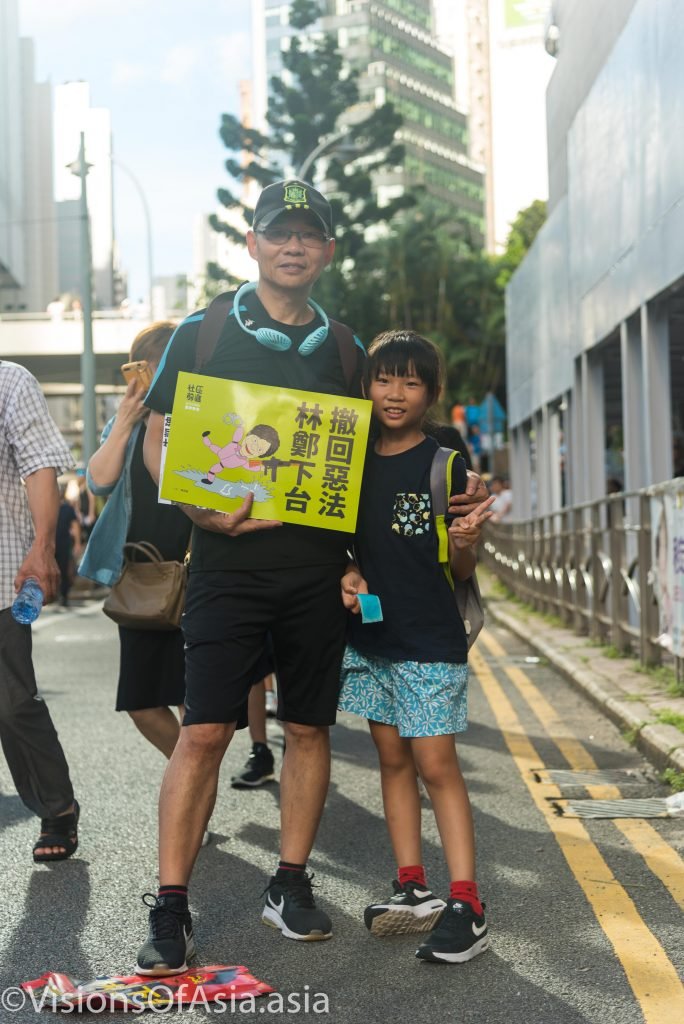
Although hopes were high to see the turnout of the first two massive protests repeated, those hopes fizzled out as frictions started emerging at the LegCo, the Legislative Council of Hong Kong (sort of “Parliament”). Mostly younger protesters came equipped with masks, helmets and took whatever they could find around to break into the LegCo.
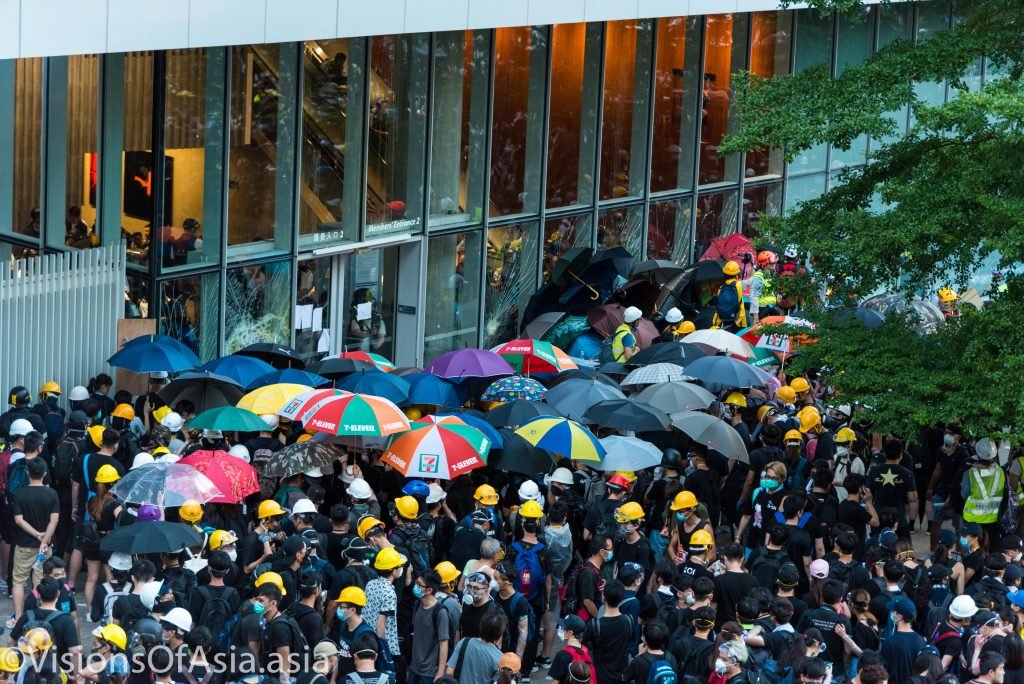
Lower turnout, but still respectable
Despite these frictions, the turnout was still rather respectable, nearing (according to organizers) 550,000 people. What was clear from drone pictures and simple observation was that the crowd marched far more fluidly this time around, and square meter saturation was much lower than on the previous two occasions.
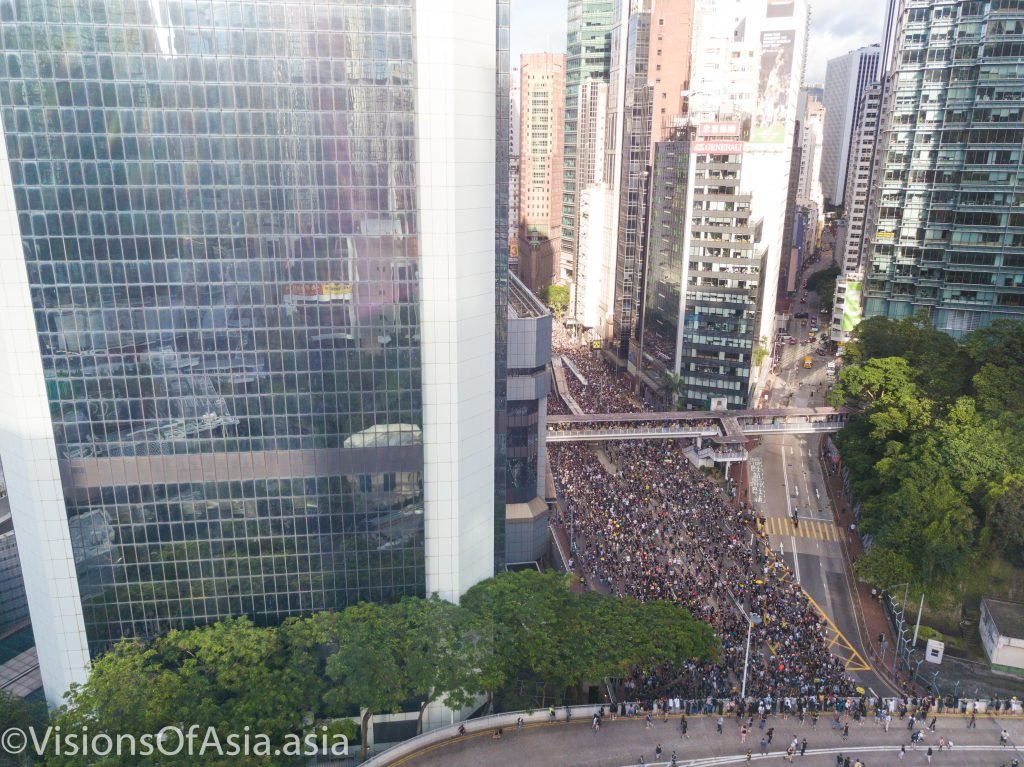
On July 1st, the crowd was marching way more fluidly, and on this drone picture it is obvious the protest is not saturated with people (lalthough still resepctable). 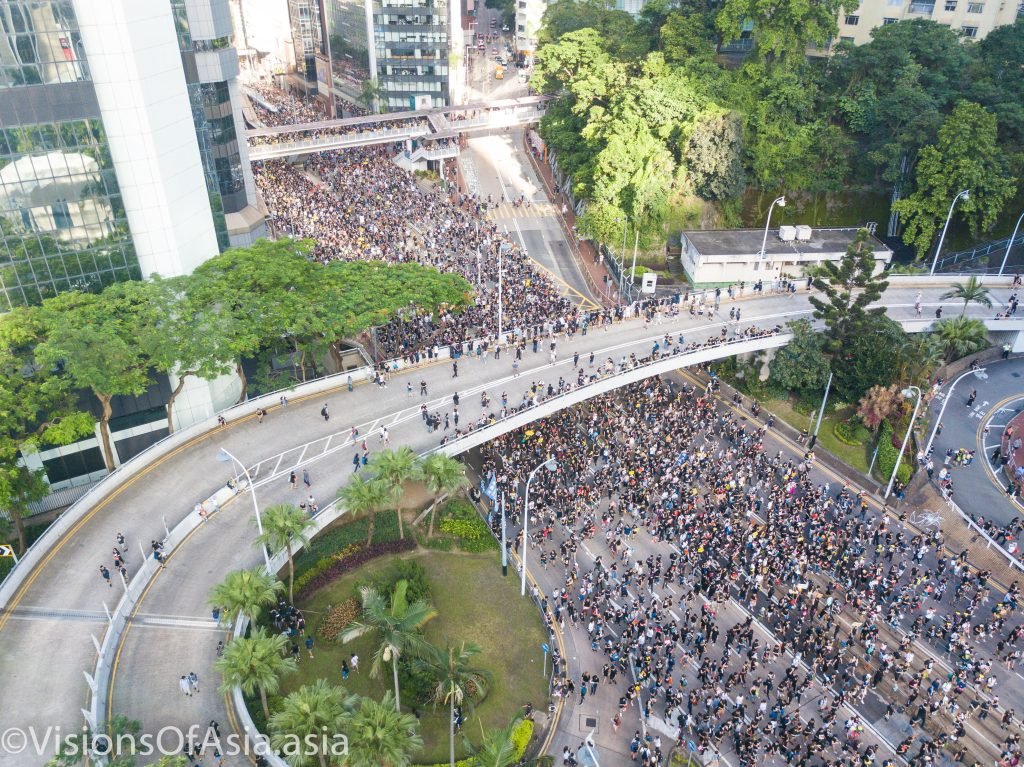
The protest march of July 1st, near central Hong Kong
In the main protest, people were peaceful and there was even a few musicians singing “imagine” by John Lennon, to encourage the marchers.
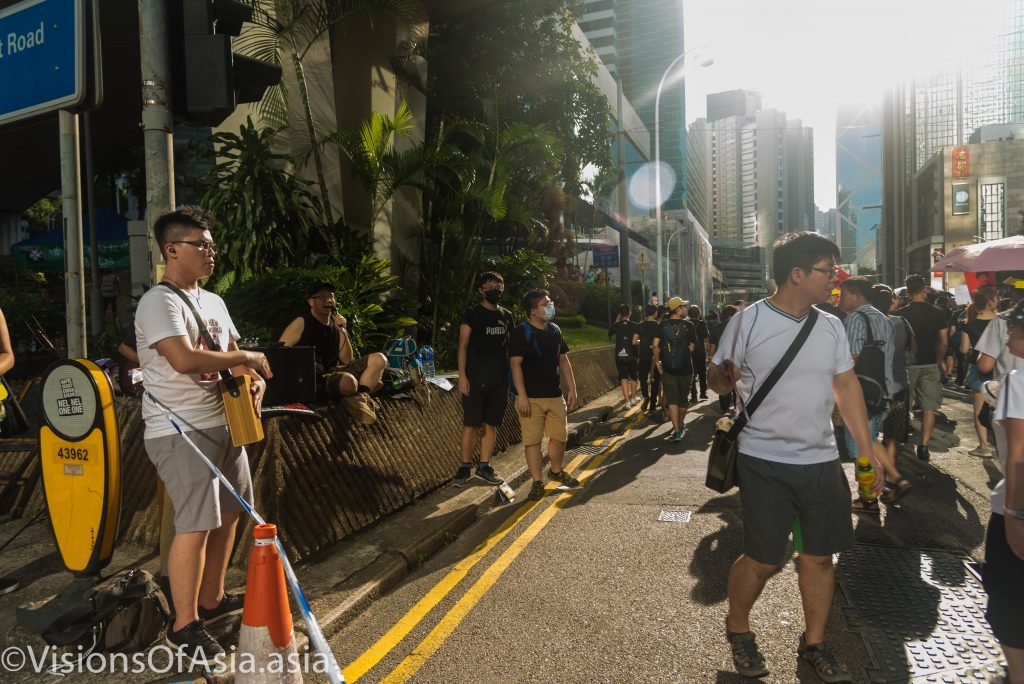
However, very near to this peaceful march, masked protesters were calling marchers to move towards the LegCo. The idea was of obtaining more support for the people then trying to break into.
Earlier in the day, protesters took down the Chinese flag and floated instead a Hong Kong flag where the red color was replaced by black, making this officially the “Black Bauhinia revolution”.
An incredible organization
By contrast to 2014’s “Umbrella Revolution”, this “Black Bauhinia Revolution” was just as organized in its disorganization. Individuals brought supplies that were then kept or organized by self-appointed volunteers. On the street divider before the LegCo, other volunteers called the people to join them on the other side, helping those who wanted to cross through
Similarly, human queues measuring hundreds of meters passed supplies to the frontlines.
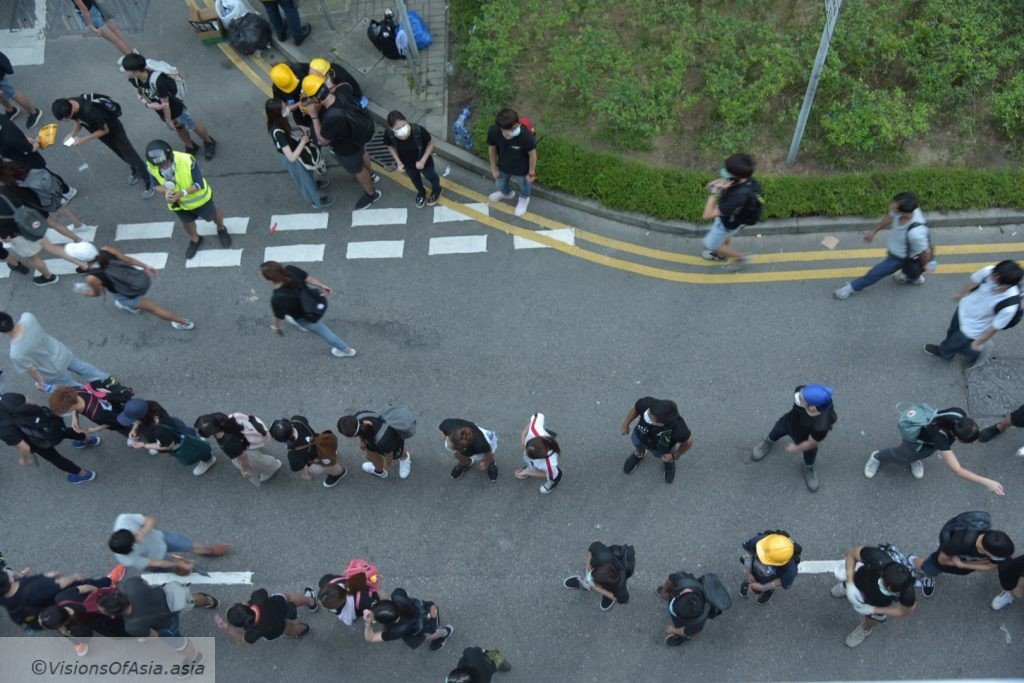
Most of the participants waited on the back, while a small number of activists took part in the assault. Some pro-democracy lawmakers tried to stop the protesters from besieging the LegCo but were widely ignored or even physically restrained and removed. From accounts in the press, this plan was carefully hatched within a small group of protesters who in their informal “roadside democracy” voted to escalate the protests (and traditional leaders such as Joshua Wong were ignored).
Nervousness with photos
On the ground, protesters were very nervous, especially with people taking photos. They caught, for instance, a man passing off as a lady with a yellow vest and demanded he delete his photos in an intense standoff.
The reasons for the man masquerading as a woman and further, for taking pictures of the protesters was unclear.
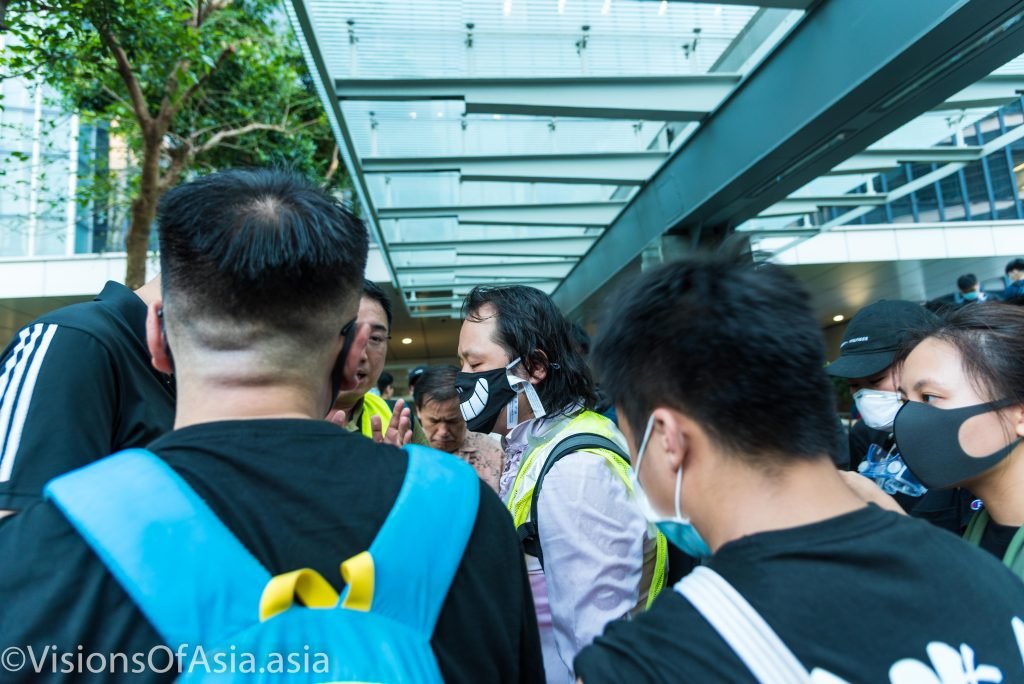
A LegCo member, Lam Cheuk-Ting, had eventually to mediate to calm the spirits down.
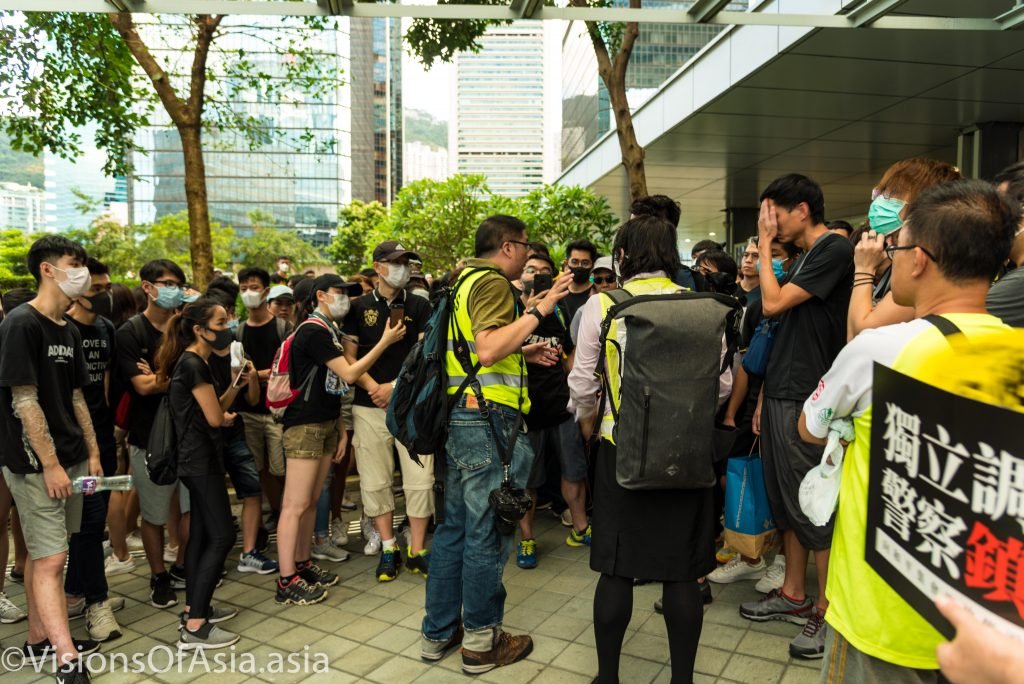
On my own side, I had a couple people repeating “no photo, no photo”, among which a middle aged woman and a little 13-year old girl… Who both, were unable to speak any other English. Protesters were being very scared of being recognized and chased down by the police or by Beijing’s thugs. And apparently, the fear is not unjustified.
The final act
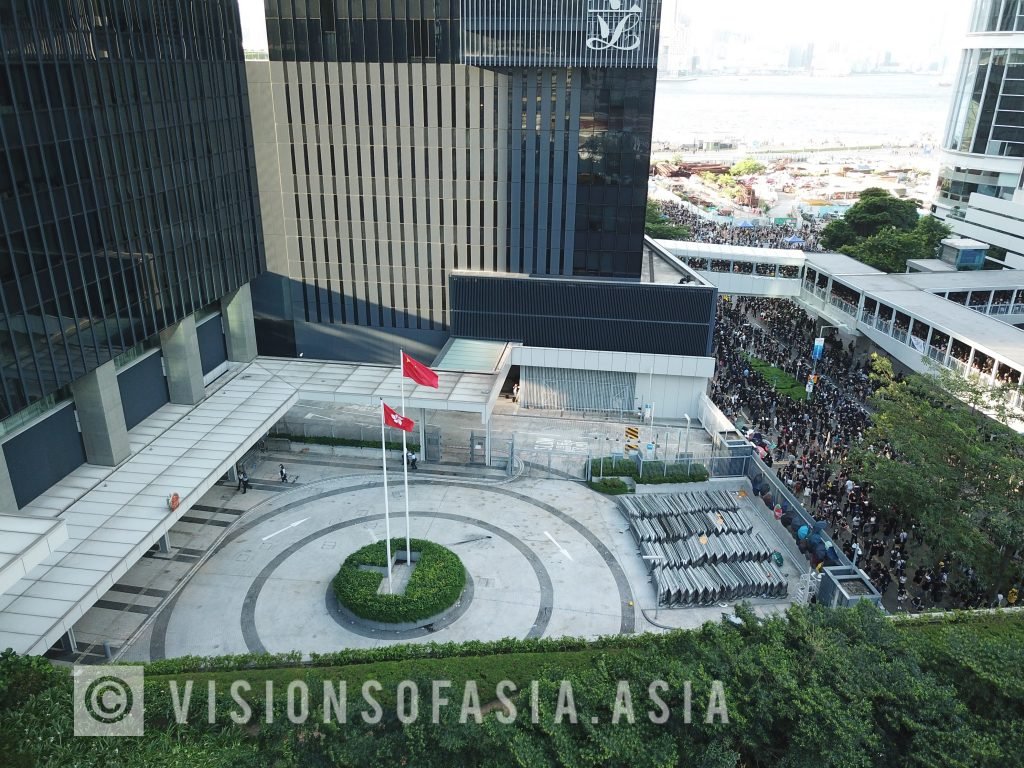
As the evening progressed, protesters tried one entrance after another, continuing for hours their sapping work.
In other places, there was this girl, writing slogans on all of her limbs with a marker.
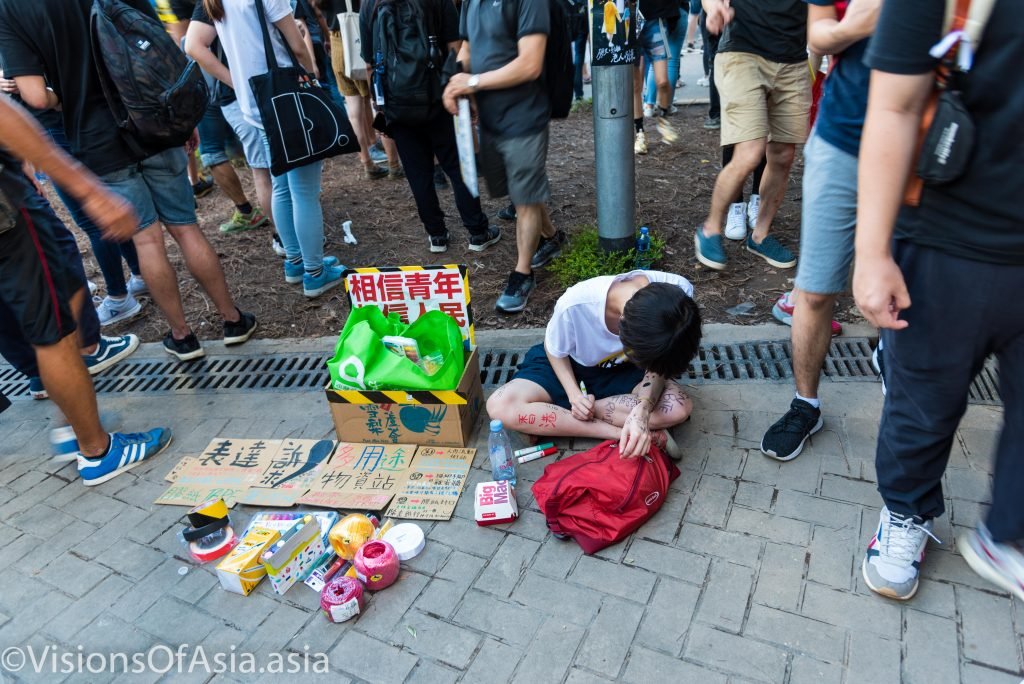
Just nearby, after pro-police protesters had destroyed what is famously called the “Lennon Wall”, the protesters had recreated this place where most of them expressed their hopes or despair. Many deposed flowers to a makeshift shrine honoring what many consider as their “martyrs” (two guys and a girl who fell or committed suicide allegedly because of this Extradition Bill).
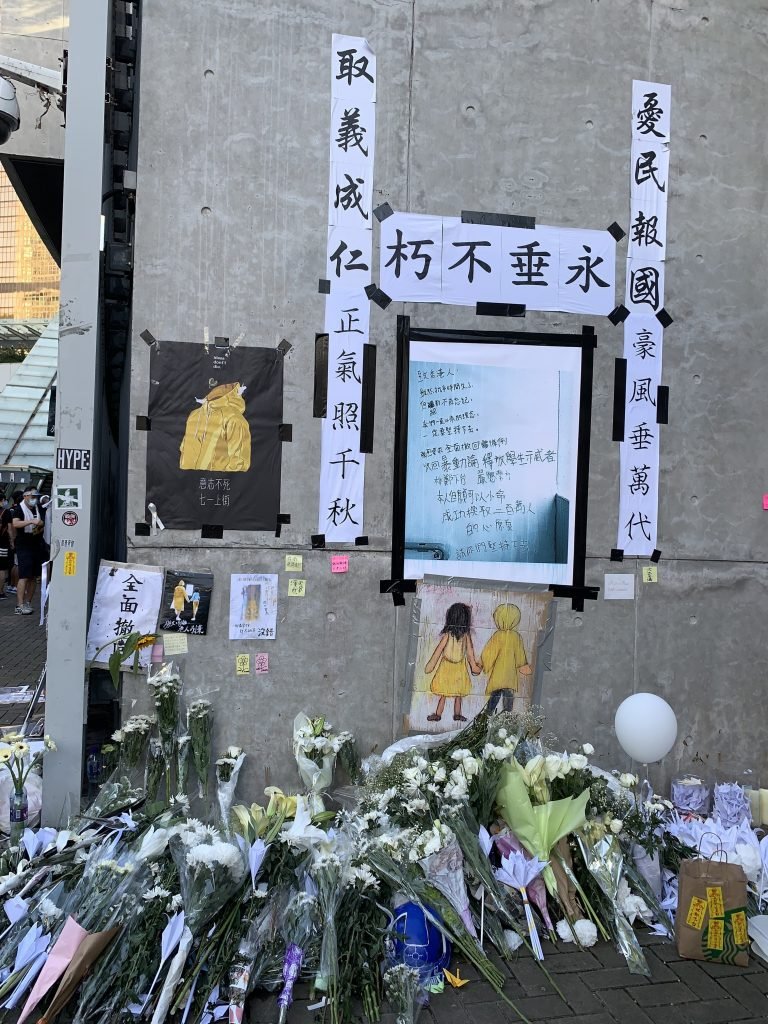
By contrast, further down the road, small groups of protesters tried keeping on breaking into the LegCo.
As the evening progressed, the mood became more somber, and a crowd congregated at the LegCo.
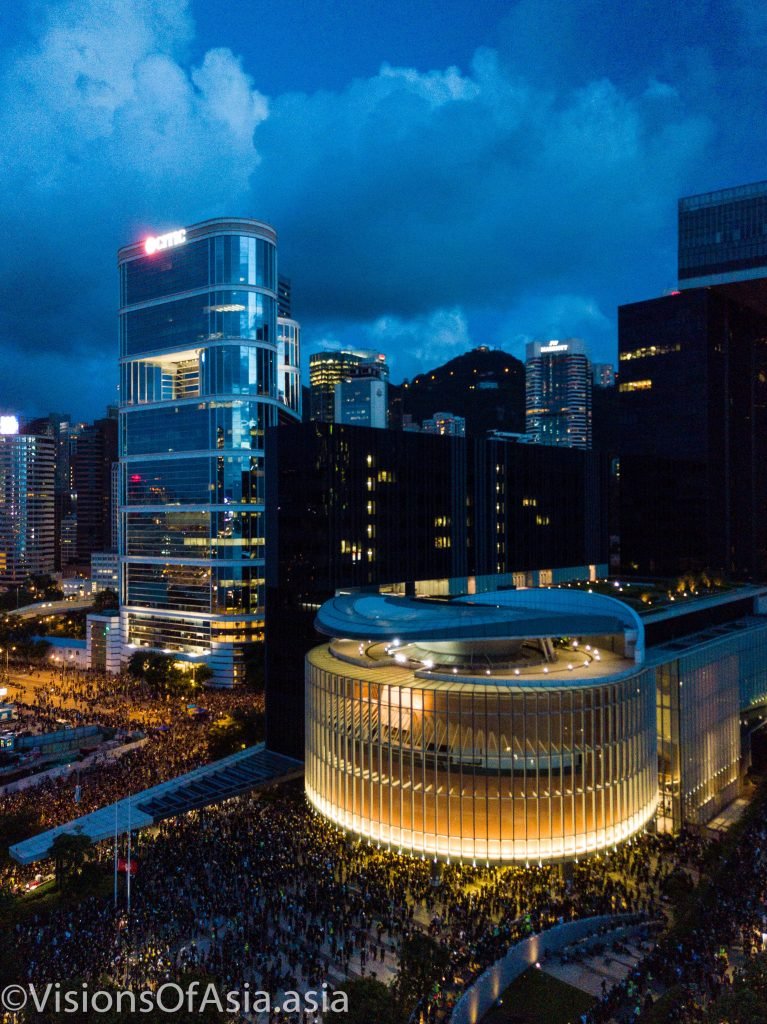
Protesters kept relaying themselves on the front lines, their forearms wrapped in shrink wrap plastic, in order to protect against pepper spray. Others kept demolishing local urban furniture to provide more material for the frontlines (but once again, in a very organized manner: they just unbolted the metallic guard rails, rather than breaking them forcefully…).
Interestingly, but not too much should be read into it, as people in Asia are not necessarily aware of historical symbols, a black flag (symbol of anarchism) was also flown by some protesters. But despite all this, the young kids remained very much hongkongers to the end: they always apologized if they bumped into my bag. You felt that this action was against their deepest nature, but truly some extreme to which they had been pushed.
Later in the evening, the protesters finally managed to break into the LegCo and defaced the main meeting chamber, taking a special relish in targeting anything that referenced China.
The remainder is history.
A shocking conclusion, but mostly approved by the population
The insensivity and the callousness of the Chief Executive Carrie Lam in refusing to withdraw the bill, despite huge numbers of protesters in the streets caused intense dissatisfaction in the whole population. It must be said that the bill was finally “suspended” only after young protesters managed to besiege and lock down the LegCo, thus making it impossible to hold meetings.
The contrast between the indifference to millions of peaceful protesters and the effective results obtained by a few thousand violent activists was enough to fuel even more the determination of the protesters. Where most of the population might have reservations on the methods, the government of Hong Kong should not think it could ride on this unease to impose the cult of the “rule of law”, a term often used by China to justify totalitarian action.
While it is delicate to assess the extent of overall support in the population, the protesters marching were numerous last Sunday, and furthermore, the people of Hong Kong are very conscious of what they owe to the roar of the (young) lions.

